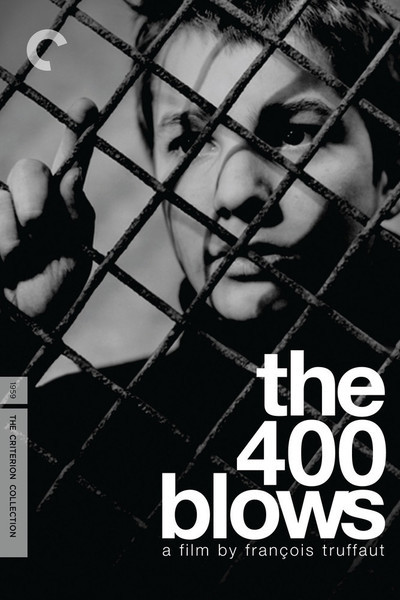Film Friday: The 400 Blows
(This is the first of a weekly post I hope to start doing where I take a look at various films and give them a review/evaluation of sorts)

Warning: Slight Spoilers Ahead
I feel I must start out this post by admitting something that many other "film buffs" may find treacherous: I don't typically don't go out of my way to view movies that were made in any decade before the 70's. I know that by doing this, I'd be missing out on a large chunk of many films that many would claim are pretty much the sole reason most of my favorite movies even exist. And I wouldn't argue that point either.
However, as time as gone on and my taste has expanded, I've made an effort to branch out more and give these older "classic" films a shot. I've come to discover that many of the qualms I had with movies from these previous decades, such as the blatant misogyny, racism and "morally straight-forward white male lead seemingly incapable of any wrong doing" tropes, are usually mostly found in American cinema more than any other. I just couldn't stomach sitting through another western movie where the MC slaps around women and is seen as a man of authority that gets hailed as a "hero" by the end credits.
It was then I started looking more into the" French New Wave" movement that started to take place in the late 50's. My first taste of it being the romantic triangle story of "Jules and Jim". I found it to be totally ahead of it's time and it was so relieving to see characters with depth and believable reactions to the world around them. Not to mention a lead woman who actually wasn't there as prop for the male characters.
My comrade @zachnewell had made the suggestion of " The 400 Blows", so when I finally sat down to view it, I felt the same sort of feeling I did with "Jules and Jim", where I could see the characters being the sort of people I could easily bump into on the street or see in a coffee shop. It was after looking into it's Wikipedia that I found it was also seen as one the films to herald the "French New Wave" movement as well.
The 400 Blows is a coming of age story of a young Parisian boy by the name of Antoine Doinel. A troubled, but clever and resourceful school boy who is considered to be a delinquent and typically treated as a lost cause by adults such as his teacher and parents. It's obvious very early on that despite being prone to misbehavior, he has a sense of loyalty and honor. When caught with a scantly clad picture of woman passed to him in class and forced to stand in the corner and miss recess, he doesn't even so much as peep a single name.
I felt like these sort of interactions set the tone for the rest of the movie. While the adults like to treat Antoine as criminal in the making, they fail to see that he's bursting to the seams with energy and cleverness that could be channeled into something special, but instead gets met with punishments and scathing criticism. His parents claim to the principle later in the film that Antoine keeps to himself and refuses to communicate, yet early on he openly states to his mother that he feels school isn't for him and he would rather be earning a living working a laborious job, which is responded to as being a foolish mistake that would be repeating the same choice his father made of dropping out.
It's made clear that his home life is a fairly cold and distant one, having a mom who wears her resentment on her sleeve and at one point even reminiscences to Antoine about her days of youth and getting caught by her parents with a boy when she was a teen. His father, who seems well meaning and loyal, is a bit heads in the clouds and more focused on his own career and passions than he is about the ongoing struggles his son faces in school. The only real time he ever intervenes is whenever they are called in by the school to learn that Antoine is yet again in trouble.
The 400 Blows does an excellent job of capturing the excitement and frustrations of being a wide-eyed youth. When going through the bustling streets with his best friend it's seen that Antoine is really no different than most pre-teens. He just wants to have fun and see what life has in store for him. I felt so much joy and sadness throughout the film, as many of the struggles hit home with myself when I was a child, what with his confusion as to why he is being forced to learn things he knows he'll never use and why him wanting to just get a jump start on his future is met with so much negativity from the adults around him.
By the end credits, I felt so attached to Antoine that I found myself guessing what life would have in store for him as he got older. The ending is an open one and leaves much to the imagination for what could be next. While I may never know what unfolds for Antoine, the slice of life I did witness was a special one that'll stick with me for a the months to come.
Dig the share. Thanks.
Shoot the Piano Player was also good.
Great film, thanks
"I just couldn't stomach sitting through another western movie where the MC slaps around women and is seen as a man of authority that gets hailed as a "hero" by the end credits."
Really digging that point about American cinema of the period. Well put.